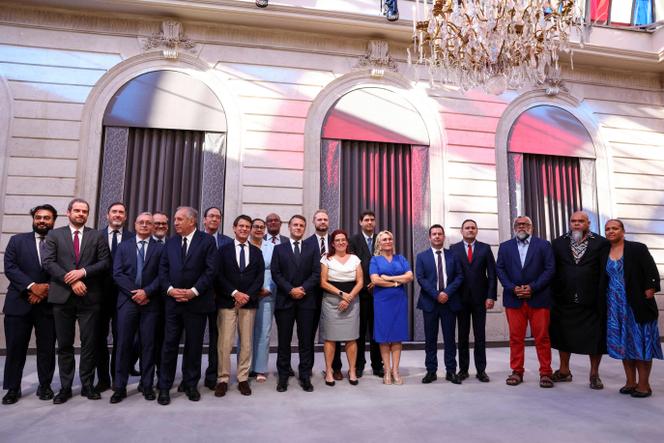


An accord between France and New Caledonia, creating a state within a state and hailed by French President Emmanuel Macron as "historic," hit immediate fierce criticism in the Pacific archipelago on Sunday, July 13. Following deadly protests that rocked New Caledonia last year, Macron called for talks to break a deadlock between forces loyal to France and those seeking independence.
After 10 days of negotiations near Paris, French officials and a delegation of 18 New Caledonian pro-independence and anti-independence representatives reached agreement on Saturday to create a "State of New Caledonia" within the French Republic. The text, which still requires French parliamentary approval and to pass a referendum in the archipelago, provides for the creation of a New Caledonian nationality and the sharing of powers. But it won few supporters in the archipelago.
The signatories of the draft agreement admitted during a meeting with Macron on Saturday evening that they were struggling to win over opponents of the deal, which will be submitted to a referendum in February 2026.
Joel Kasarerhou, president of civil society group Construire Autrement ("Build Differently"), called the agreement "stillborn," describing it as a "poor" replica of previous agreements and "lacking ambition and vision." Kasarerhou said the youth at the heart of the May 2024 uprising had been "forgotten or barely mentioned." He feared another "May 13": the date the 2024 riots began.
Home to around 270,000 people and located nearly 17,000 kilometres from Paris, New Caledonia, one of several overseas territories that remain an integral part of France, has been ruled from Paris since the 1800s. But many indigenous Kanaks resent France's power over the islands and want more autonomy or independence.
Unrest broke out in May 2024 after Paris planned to give voting rights to thousands of non-indigenous long-term residents. Kanaks feared this would water down their influence, crushing any chance of securing independence.
Philippe Blaise, the pro-France first vice president of the Southern Province government, distanced himself from the accord, saying on social media he had discovered the contents of the agreement "like all New Caledonians" after it was signed. Blaise said the text "crossed a red line" with the recognition of a "New Caledonian state" and a "distinct nationality": incompatible, in his view, with French unity.
Several pro-independence figures said the accord was signed without a clear mandate from their base. Several social media posts by pro-independence activists condemned their representatives' signing of the deal. Brenda Wanabo-Ipeze, a leader of the pro-independence group CCAT, currently incarcerated in France, said: "This text was signed without us. It does not bind us."
Melanie Atapo, president of the pro-independence USTKE union, which represents Kanak people, told AFP she was "surprised" by the agreement and that the signatories should "come back to share with the bases before signing". Another pro-independence leader with links to the pro-independence FLNKS party, speaking on condition of anonymity, called it a "betrayal," saying pro-independence negotiators have "given in on essential points" without militant approval.
